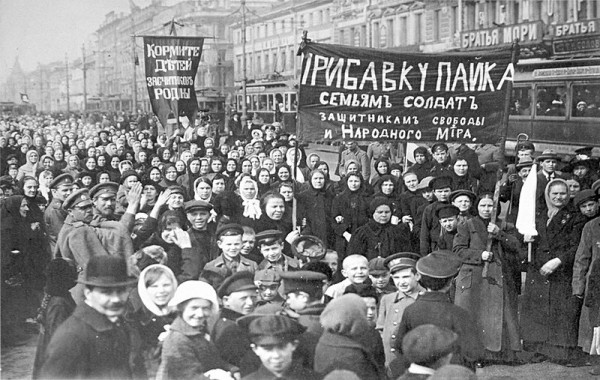
Here's the details of this month's Libertarian Socialist Discussion Meeting organised by the Leicester Group of the Anarchist Federation. Hope to see some of you there!
As February 2017 marks one hundred years since the start of the Russian revolution, we ask what we can learn from it and what its effect has been on revolutionary ideas and action and the wider workers’ movement from 1917 to the present.
Wednesday 22nd February
7pm at the Regent Sports & Social Club
102 Regent Road
Leicester LE1 7DA
(NB: the venue is a short walk from Leicester train station).
Bump. It's tonight!!!
Bump. It's tonight!!!
Forgot to say, they do a decent pint at the Regent and the chilli and chips is fantabulosa.
Though attendance was a
Though attendance was a little smaller than last month due to an unfortunate clash with a Leicester Social Forum event at the same time, the meeting nevertheless went well. The discussion was led off by a left communist friend of the local AF, who gave a solid background to the 1917 events in Russia. Key points in the ensuing discussion were:
- 1917 was a seminal moment in world revolutionary proletarian history
- it is perhaps mistaken to think of it as the "Russian revolution" as it was a catalyst for uprisings, mutinies and revolutions in many other places (e.g. Germany, Hungary, Italian factory councils, etc.)
- its failure, and the subsequent failure of revolutionary movements elsewhere were ultimately a failure of "socialism in one country" (or more accurately, state capitalism in one geographical location)
- the workers councils (soviets) were a major contribution to revolutionary movements (although to be fair, the councils go back to 1905)
- the taming of the soviets by the bolsheviks, the repression of Kronstadt and the makhnovschina were all mentioned
The massive influence of the Russian revolution on the years between 1917 and now are unquestionable. It led to:
- the bolshevisation or leninisation of the more revolutionary wing of the international workers' movement
- this bolshevisation/leninisation included revolutionary groups and movements of various tendencies (including anarchists)
- the dominance of the Comintern and Stalinist tyranny, etc, led to the deformation of revolutionary politics and has left concepts such as socialism or communism as tainted, damaged
- pro-revolutionary ideas, groups and movements are still recovering from this
- the apparent death of class consciousness, the general lack of collective working class awareness and the dwindling of revolutionary groups and ideas is a probable repercussion of the failure of 1917 and after
- the dire state of the world we see today is ultimately evidence of the failure of 1917